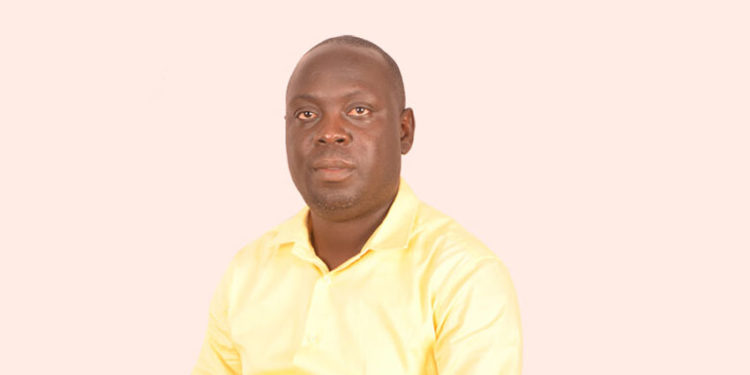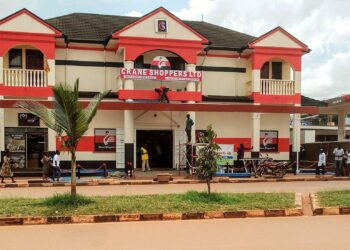With general elections at the corner, many young people are showing interest in leadership at different levels. Their interest has been steadily heightening for some time, with that rise becoming most noticeable in 2011 when they turned up in the largest numbers ever to vote and to vie for positions. That is how we ended up with a good number of “baby MPs and Local Council executives”.
This notable increase in participation of young people in politics and governance is very good news and an affirmation of the justification for the advent of NRM through a liberation struggle.
The great youthful wave now in motion is a result of President Yoweri Museveni’s planning and design for the country to have an active generation that will carry Uganda’s name among the great nations in the region. That was the plan behind mass immunisation, mass education, mass empowerment, creation of special representation slots and expansion of governance structures, on top of emphasising provision of social overheads for mass participation in the economic, social and political affairs of the country.
The above preamble very much constitutes the happy part of this narrative. The other part is worrying; while young people have expressed readiness to actively participate in and influencing politics, the problem is how they will be managed in case their numeric advantage is misused. A section of them has fallen in the hands of bad, ideological mean influences, mobilising them under the banner of radical hate. Ideology is a strange “animal” to them. Even hearing the term “ideology” spoken unnerves them. Their culture and currency of trade is targeting individuals and “going low” at the slightest challenge.
For obvious reasons, the majority of these ideologically struggling youngsters are on the side of the opposition.
Left uncontained, politics of hate and intolerance could set our restive country on a dangerous course. 34 years of stability could be lost in a flash, together with a great promise of our country’s and region’s collective potential.
Uganda, though it had suffered stagnation due to poor governance and under the grip of anti-people regimes, has been rapidly catching up with its peers and leading them in some respects. All that because of strong and dependable leadership by which Uganda has won influence in the region. For that, Uganda is being prepared as a hot bed of foreign meddling intended to weaken our position and in so doing, regional unity in the form of East African Federation is threatened.
I have studied the attitude of the young people I have touched on above and discovered that they are not alone in their adventurism. Behind them are forces bent on using Uganda as a launching pad to fail the federation dream which President Museveni has progressively championed to a point where the mustard is about to sprout.
President Museveni is unfairly attacked and insulted by groups of young people despite how far he has brought Uganda. Much to his credit, apart from practically attending to the needs of all categories of Ugandans whenever he can, he employs his gift of great communication skills to interact with these hostile young people on social media to further open their eyes to the great potential within and around them. That approach very much annoys his enemies who wish that he would arrogantly tell off the youngsters, who would then get coached further on how to attack and abuse everyone, using the election season as cover.
Elections are a significant rite in the life of a country with functional democracy but for gullible youths, they could easily be taken advantage of with a promise of “great and paradisiacal things” as it was in Libya where people sold their country for the price of endless regret.
By now, we know the enemies of African progress and in particular, federation of like nations such as those in East Africa. Those enemies are working tooth and nail to fail that project, using a veil of making democracy deeper and broader. Does East Africa really need lessons in democracy? We can learn from one another but nothing should be forced down our throats.
Uganda is well positioned to lead the Federation initiative, having set an example by being a security guarantor in the region. During the Covid-19 situation, Museveni has been instrumental in helping to contain the virus by emphasising a collaborative, cross-border approach.
Uganda is a landlocked country, smaller in size than our larger neigbours; it needs closer access to the coast to spur faster economic growth, something that can be achieved under a Federation arrangement when East Africa is virtually like one country where tariffs are revised and uniform. We stand to gain a lot but many don’t see this.
Uganda’s interests should come first while being equal with our brothers and sisters within the region with whom we share similar challenges and aspirations. We should seek closer ties with our neigbours than foreigners from afar with whom we have many differences and their interests are at odds with ours.
As a young person myself, I am mindful that not many have been lucky to be mentored by the best to appreciate some of these fundamentals of discipline in preparation for leadership. That is why I recommend a national service scheme where fresh graduates undergo ideological sharpening before being deployed to play other roles.
That way, they will learn to put the interests of Uganda and East Africa first in all they do and say to avoid dropping down the cliff of civilisation. Competition in politics is a necessity but it offers better benefits when based on ideological and civic depth.
The author is a Private Assistant to H.E the President in Charge of Media Management
Contact: kirundaf2@yahoo.com
Do you have a story in your community or an opinion to share with us: Email us at editorial@watchdoguganda.com














